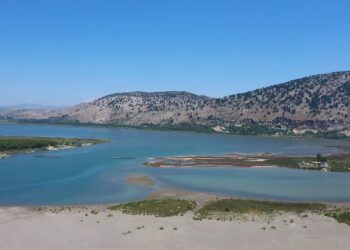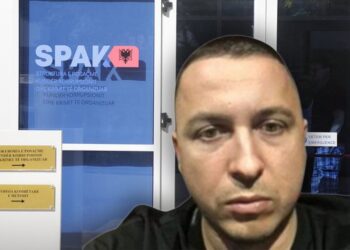Only three minor offenses, considered minor, have blocked almost entirely the judicial system. The tightening of the criminal policy against illegal construction, irregular handling of the vehicle and theft of energy, more than the increase of security for citizens, has led to an increase in revenue for the state budget. This is because the persons arrested for these criminal offenses, at the conclusion of the trial process, are fined, after spending several days or weeks in detention facilities.
In the Tirana Court, over 40 percent of trial or completed cases belong to the above criminal offenses. On the court site of the capital city, there are updated records on the progress of trials of various criminal offenses.
Based on an assessment of court proceedings for 2015, the total number of criminal trials in Tirana has reviewed about 5700 files. Out of this total, 2250 files, or almost half of them, belong to only three criminal offenses out of 260 that are in the Criminal Code.
Last year, the Tirana court has reviewed 1032 litigation cases for “Energy Theft”; 1052 criminal files for “Irregular handling of the vehicle” and 170 cases for the criminal offense of “Illegal construction”.
Police operations for the identification of these criminal offenses, declared forcibly in public as the best solution for citizens, actually results in an efficient means of raising state finances, as these offenses are generally punishable by a fine. But until the court proceedings are completed, the defendants spend several days or weeks in detention facilities. Actual government justice ministers, initially NasipNaço and later YlliManjani, have often publicly complained about overcrowding of detention facilities and prisons, especially because of convicts for minor offenses.
And in fact, the annual statistics support the concern of the heads of the justice ministry, while fear of imprisonment is justified, thanks to the harsh words of Prime Minister Edi Rama and Interior Minister SaimirTahiri.
The burden of dealing with these criminal offenses, considered “light” along with the court, has increased almost to the limits of the volume of work for other links in the justice system.
Initially, the State Police, referring to its periodical and weekly reports, seems to have emphasized its work precisely in detecting illegal constructions and running unpatented vehicles or drunk.
For illegal construction, the State Police intervention was deemed necessary because of the apathy of the local structures responsible for detecting these cases and putting legal liability on the persons in violation of the law. However, this police commitment is a high cost for the state budget as well as for the efficiency of this structure in the fight against criminality and corruption.
As far as police engagement on road safety is concerned, this is a task. However, despite the fact that the criminal legal framework for this offense has been severely aggravated, according to official police reports, it seems that they have not yet given the expected effect. The number of arrested persons in drunk continues to be constant.
The burden of police actions for these criminal offenses directly increases the number of investigative processes in the Prosecution.
In the General Prosecutor’s Annual Report, submitted a few days ago to the Parliament and already published, these works continue to grow statistically. According to Prosecution data, for the year 2015, at the national level, criminal proceedings were registered and investigations were conducted for about 1100 cases of illegal construction, about 2800 cases of irregularly handling the vehicle and about 2100 cases of energy theft electrical














